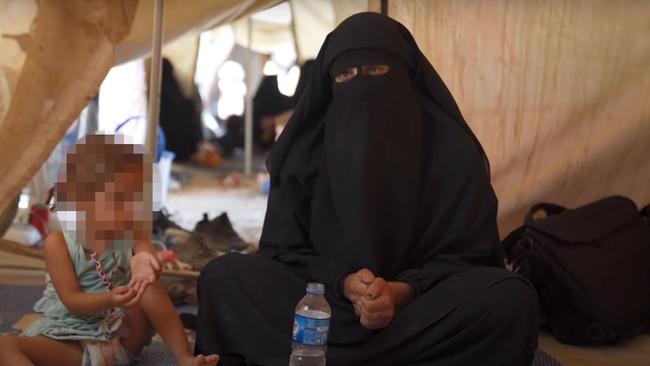ISIS bride’s arrest doesn’t reflect Young community
Young residents say the alleged actions of a ‘minority’ do not reflect the town’s relationship with its growing Lebanese Muslim community.

The arrest of an “ISIS bride” in the rural NSW town of Young has shocked the local community who say the alleged actions of a “minority” do not reflect the town’s relationship with its growing Lebanese Muslim community.
Miriam Raad, the wife of ISIS’s star Australian recruiter Muhammad Zahab, has been living in the town since being repatriated from a Syrian camp in October.
In recent years, Young has become known as the unofficial Muslim capital of the outback.
According to 2021 census data, close to 500 of Young’s 11,000 strong population are Muslims, with locals saying many more flock to the town during holiday and seasonal periods.
The establishment of halal abattoirs almost a decade ago saw an influx of Muslim families and workers, especially of Lebanese heritage, migrate to the small rural town.
Many of the town’s famous cherry and horticultural farms are now run by Muslim families. “There’s one man who runs a produce farm nearby and we always see him advertise free produce for people in need on Facebook,” said local grain broker Michael Jones.
“He just hangs them on his fence and says if you need it, take it – he’s a very kind hearted man.”
Mr Jones, 54, said when he moved to Young with his wife and child almost 20 years ago, he could never have imagined the town would also be home to someone charged with terrorism offences.
“It is a concern, and on principal it’s disturbing that this has actually happened,” Mr Jones said.
“It’s disturbing that (the so-called ISIS brides) are allowed straight back into the community – especially for people who have sons and daughters who have fought against (Islamic State).
“It must be horrific for them that their children die but (these brides) can come back into the community and everything is rosy.”
Mr Jones said their choices did not reflect the local Young Muslim community.
“I don’t think there’s any animosity between us – it’s probably the opposite actually,” he said.
“There’s no ‘us’ and ‘them’ here because the Muslim community have really tried hard to be inclusive, so we should try too.”
Vicky Powderly, 65, a born-and-bred Young resident, said in the decades she has watched the Young community grow, the rise of Lebanese Muslims in the area had also been a great benefit to the local economy with the influx of multicultural businesses boosting both tourism and community spirit.
And though Ms Raad’s arrest isn’t the first Islamic State-related arrest to have occurred in the town, she said she couldn’t blame the local Muslim community.
“There’s good and bad in every race and community … but I think the Lebanese community here are so friendly and so nice so I don’t think (Ms Raad’s arrest) has affected us in a negative way,” Ms Powderly said.
“I don’t think anyone holds any sort of anger towards the community.
“I just really hope we don’t allow this incident to change our town,” she added.


